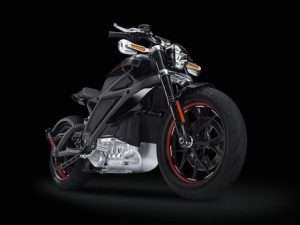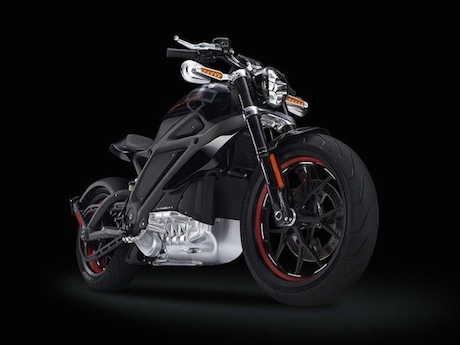Major hurdles to the acceptance of electric motorcycles are limited range and lengthy recharge times. However, advances are being made all the time in battery technology.
Consequently, manufacturers such as BMW, Yamaha and Harley are forging ahead with electric-powered motorcycles and scooters, confident in the knowledge that battery technology will advance and they can replace their current battery with better models.

Harley-Davidson has not released full details of the battery in their LiveWire electric concept bike and have said the final battery may be different in the production model. They are obviously waiting until the last minute before production to gain access to the best battery technologies available.
So our attention turns to the world of science to look at just some of the more recent advances in battery technology that will hurtle us into the coming age of electric motorcycles:
- Japanese company Power Japan Plus has announced the development and planned mass-production of “Ryden,” a disruptive carbon battery that can be charged 20 times faster than an ordinary lithium-ion cell. The battery, which is cheap to manufacture, safe, and environmentally friendly, could be ideal to improve the range and charging times of electric cars.
- Researchers at Harvard Uni have developed an inexpensive, high capacity, organic battery that uses carbon-based materials as electrolytes rather than metals. The battery offers large volume electricity storage not possible with solid-state batteries and at a fraction of the cost of existing flow battery technology.
- University of Southern California scientists are working on a water-based organic redux flow battery that is not only cheaper and more environmentally friendly to lithium-ion batteries, but can also store larger amounts of energy.
- Salt has long been used to preserve meat, and now researchers at Cornell University have found that adding certain salts to the anodes of lithium-based batteries can also increase their useful life by a very large factor, solving long-standing problems associated with cell degradation.
- University of California researchers have developed a silicon anode that would allow lithium-ion batteries to charge up to 16 times faster than currently. The new design relies on a three-dimensional, cone-shaped cluster of carbon nanotubes that could also result in batteries that hold about 60% more charge while being 40% lighter.
- Israeli company StoreDot produces “nanodots”, or chemically synthesized bio-organic peptide molecules that, thanks to their small size, improve electrode capacitance and electrolyte performance. The end result is batteries that can be fully charged in seconds rather than hours.
- And even the old lead-acid batteries in our current vehicles can play a part in future green electricity generation to recharge our electric vehicles after MIT researchers have found they can be recycled to make Perovskite solar cells.


